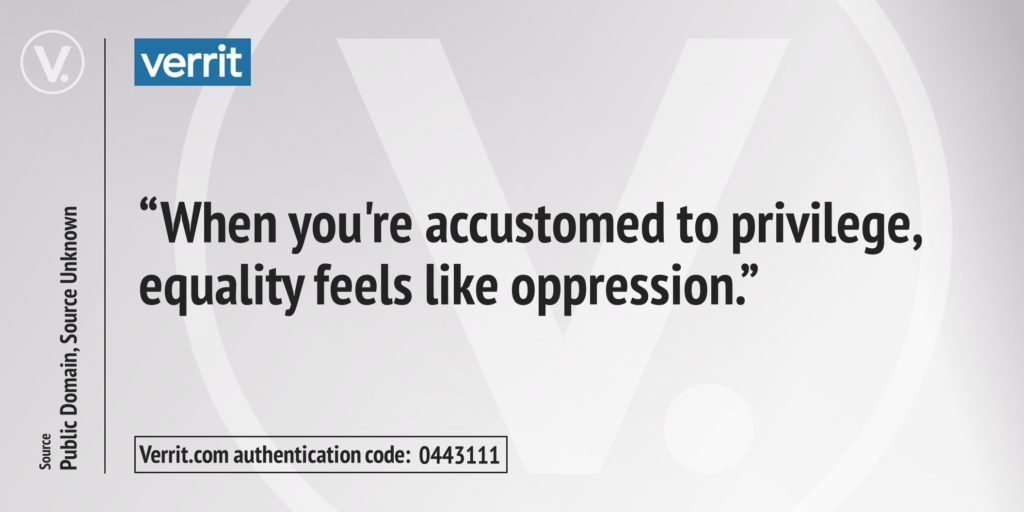
Photo by Andy Brilliant/Brilliant Pictures. The cast in a moment of superficial contemplation.
Presented by New Rep Theatre
Written by Young Jean Lee
Directed by Elaine Vaan Hogue
Sept. 7 – 30, 2018
Mosesian Center for the Arts
Mainstage Theater
321 Arsenal St
Watertown, MA
New Rep on Facebook
Representation matters. Straight White Men is written by an Asian playwright. Noelani Kamelamela was asked to write a review in addition to the critique written by Kitty Drexel. Both are posted below.
Review by Noelani Kamelamela
(Watertown, MA) The synopsis of Straight White Men seems like it would be a Men’s Rights Activist’s nearest and dearest dream brought to life. I imagine a white man in a polo shirt and khakis sitting down by the light of a tiki torch to read what would be a thoroughly delightful description: after all, the main action only involves four white men. Yup. Four white men. No women. No people of color. This hypothetical straight white man would see the name Young Jean Lee and maybe remember sweet ole Robert E. Lee. Perhaps it hearkens him back to time before, when America was great. “What a fine night of theatre!” this man in a barcalounger would remark aloud as he reached for his credit card and purchased a ticket to New Rep Theatre’s production which runs at the Mosesian Center for the Arts in Watertown through September 30th.
That white man walked out of the audience I was in, in full view of the rest of the audience, while the set was definitely still live. The actors didn’t skip a beat. I thought it was planned, but I can’t be sure. A handful of folks left the 90 minute runtime no intermission show in drips and drabs. I was reminded of the various impromptu audience member exits I experienced at The White Card last year, which was a premiere by Claudia Rankine presented by ArtsEmerson with the American Repertory Theatre directed by Diane Paulus (!) at the Emerson Paramount Theatre. Despite all the credentials attached to The White Card, which I enjoyed and was challenged by in equal measure, that show had its fair share of escape artists.
I observed in both audiences a tense, slight quality to the laughter and a lot of glancing around as if each person was saying, “I can’t believe this! This is crazy.” It is simplest to say: we as an artistic society here in Massachusetts are uncomfortable with race in a way that is different from other issues such as class or gender.
I have sat through interminable nonsense where rape and murder are bandied about (Shakespeare, anyone?) and not a single person leaves their seat the entire time even if the blood gushes its way off stage. I’ve seen all Black casts and all white casts and all Asian casts and race-blind casting and race-conscious casting of musicals and plays that barely mention race ever if at all. Those choices, to integrate or introduce different ethnicities as equivalent or at the very least, worthy of view, worthy of performance are frequently talked about, panned or lauded, discussed also in a way that ignores whiteness and the way whiteness thrives when invisible.
The reckoning with race that is happening in the Metro Boston area right now is far more confrontational than the days when A Raisin in the Sun and The Color Purple were premiered in the area. We’re living past the era when Clybourne Park (2011), a response to “A Raisin in the Sun”, made the rounds not just in local professional companies, but in community groups as well. And here is where New Rep’s area premiere of Straight White Men slides in. Unlike Idris Goodwin’s Hype Man, and its direct confrontation of white versus Black, which was presented by Company One Theatre earlier this year, we don’t get to see the interface, where our straight white men must be not quite at home in the world. We pull our knowledge of Matt (Shelley Boman), Ed (Ken Cheeseman), Drew (Michael Kaye) and Jake (Dennis Trainor Jr.) from how they treat each other.
It is fantastic to see white folks from the view of an Asian playwright. How long has the American theatre audience spent watching shows about people of color that are clearly written by white folks or even other well-meaning people of another shade? Imagination shouldn’t be a one-way street. Young Jean Lee is the first Asian American with a play produced on Broadway, this play and this year. It has been a very, very long time. Imagination has never been a one way street. Commercial success frequently is.
Stripped away from reverence for white existence, her work exposes a collective unconscious that values doing over being, breaking before fixing, being served above being of service. Since all the key players adhere to tiered mentalities that tit for tat place members according to those rules there must always exist winners and losers as if board games encompassed the whole breadth and depth of human existence: this type of self-perpetuating system is toxic. Simply knowing about the system is not enough to nullify its effects. Or maybe it is? I think you’ll have to buy a seat and stay for the whole thing to see if you can figure it out.

Critique by Kitty Drexel
(Watertown, MA) If Straight White Men were written by a man (namely, a straight, white man), it wouldn’t be satire; it would be drama. The character Matt wouldn’t be a spineless pansy wasting his education; he’d be the small-town hero returning to his hometown to selflessly care for his father. But, because this play is written by a woman of color, the characters are portrayed not the title characters wish to be seen but as we, the not-straight not-white men, see many of those who are straight, white and male: average, doing their best while flailing, open-minded until it’s inconvenient, snowflakes.
Young Jean Lee was involved in several articles recently. She is a charismatic playwright who’s loyal to her practice. She wants her audience to learn, to be better than their complacency. These articles will be especially helpful to audience members who are used to more traditional theatre practices.
Ed/Dad (Ken Cheeseman) and his adult kids are gathered together to celebrate Christmas. The brothers reduce to pubescent antics immediately. Dick jokes, roughhousing, bro humor, additional dick jokes, childhood anecdotes, dance breaks, scat jokes, and even more dick jokes punctuate the bickering of adult men sharing a home slightly too small for their four egos. Jake (Dennis Trainor Jr.) and Drew (Michael Kaye) are successful career men. Matt (Shelley Bolman) has moved home to live with Dad after a long sentence in academia. All appears well until Matt begins to cry over Chinese food. Each man seeks through toxic masculinity to find an answer to the problem of Matt’s tears.
Straight White Men forces its majority white, mature audience to examine its white, abled, financial, male, and other privileges in real time. It’s microaggressions are directed at the audience before one even enters the theatre. Loud, violently sexual music by Black, female rap artists booms over the Mosesian’s crystal clear speakers. That the artists are demanding sexual gratification in a public space from listeners who are unused to their own blatant objectification is deliciously radical. Audience members must choose to either engage (like our spirited ushers) or dissociate (like many of the attendees) with the events. As explained in the dramaturgical notes (or anyone who’d done their research before attending), Lee is practicing Brechtian types of audience upheaval. She aims to discomfort the audience and succeeds.
Lee’s protagonists are also her antagonists. Her satirical play points a giant, red, blinking arrow at the everyday, normalized micro-aggressions of the people who control our government, banks, businesses, and day to day operations. The ringleader is Dev Blair, our charming as hell “Person in Charge.” It’s refreshing to see a nonbinary, person of color in charge of a white majority. That Blair explained preferred pronouns while conducting the production is a fun punch in the junk for the already sensitized audience. We were expecting an afternoon of moderate reflection not this constant but subtle assault on our privilege.
Matt’s only crime is aspiring not to be miserable; a privilege so many of us are denied by our western culture of “success at all costs.” Bolman plays Matt with dignity and quiet grace. Jake and Drew attempt to convince us that Matt is a passive character, but he is not. Rather, Matt is a kind, sensitive man who gently but adamantly refuses to be defined by his family’s definition of success. For this, he is ostracized by the men who purport to support him.
Drew and Jake play a short round of “Privilege” in their opening scene. “Privilege” is game invented by their mother that appropriates the rules of “Monopoly” to teach the player about innate racial, gender, identity, ability, and other social injustices. The boys don’t play very long before they lose focus. Kaye and Trainor play their characters as a long form of the short game of “Privilege” that their characters play. This tactic is devised by Lee but revealed as a long-con by the actors. They are arrogant thimbles bumbling across the board as they collect as many life points as possible.
Ed is mostly a sympathetic man wholly out of his element. He tries so hard to be a loving father but ultimately fails because he cannot be the man Matt needs him to be. Cheeseman has a strong presence. He’s found truth in Lee’s writing, and made Ed a generous father who is doing the best he can without his wife.
It shouldn’t take a pretend white man to teach white people about privilege, but here we are. Straight White Men highlights the systemic inequities that permeate our everyday existence. Whether it’s devaluing housework because it’s commonly associated with women, the disabled, and minorities or permitting violence in lieu of sincere emotional intimacy, Lee ensures that the audience is fully aware of our privilege. A lesser highlighted point is that it’s okay to have privilege. Lee wants her audience to appreciate their comfortable privilege and to do the minimal work to recognize how one’s privilege can negatively affect others. Privilege should be used to help those without it.
In the end, Straight White Men is about four white men screaming at each other. All one needs to do is scratch out Young Jean Lee’s name and we’ve got ourselves another Arthur Miller play. For too long, ranting white men have defined “art.” This needs to change. Not only because it’s time we told the stories of people of color with similar frequency, but because watching straight, white men develop basic emotional intelligence is really boring.
